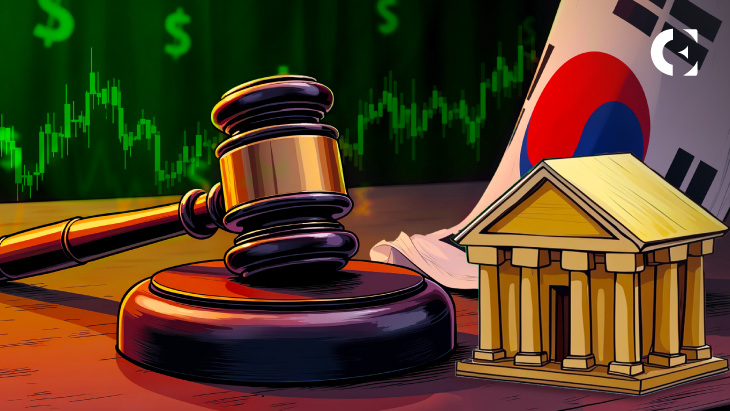- Institutional deficiencies may cause delay in implementing virtual asset taxation to 2027.
- Key issues include undefined rules for lending, staking, airdrops, foreign exchanges, and taxation of nonresidents.
- Regulators are tightening KYC/AML enforcement, with Dunamu fined ₩35.2 billion and other exchanges facing pending sanctions.
South Korea’s planned cryptocurrency tax framework may face another postponement, according to local outlet Hans Economy, which reports that key definitions and standards within the system remain unresolved. If delayed again, the implementation timeline would extend beyond five years.
In a recent report, Kim Gap-rae, Senior Research Fellow at the Capital Market Research Institute, said that despite three prior delays, “fundamental gaps in the cryptocurrency tax system remain unresolved,” making a 2027 rollout uncertain. He noted that “a fourth delay cannot be ruled out.”
Under current plans, taxation on gains from cryptocurrency transfers and lending is scheduled to begin in early 2027. However, Hans Economy notes that classification challenges persist across areas such as lending income, airdrops, hard forks, mining, and staking, which have yet to receive formal definitions.
The report also highlights uncertainty around how tax rules will apply to foreign exchanges, decentralized platforms, and P2P transactions. Additional issues include taxation of nonresidents, determining acquisition costs, and establishing the timing of taxable events.
Increased Regulatory Focus on KYC and AML
At the same time, local exchanges are facing heightened scrutiny under Korea’s KYC and anti–money laundering requirements. As per the sources available it was found that financial authorities are preparing a series of sanctions for compliance violations.
Earlier this year, the Financial Intelligence Unit (FIU), operating under the Financial Services Commission, reprimanded Dunamu’s CEO and imposed a three-month suspension on deposits and withdrawals for new customers over KYC and suspicious-transaction reporting issues. Regulators later issued a fine of 35.2 billion won.
Other major exchanges, including Upbit, Bithumb, Coinone, Korbit, and Gopax, have undergone FIU on-site inspections. Sanctions are expected to follow in the order inspections were conducted and many cases are expected to conclude in the first half of next year.
Related: South Korea’s Governing Party Presses Regulators To Allow Bitcoin Spot ETFs
Disclaimer: The information presented in this article is for informational and educational purposes only. The article does not constitute financial advice or advice of any kind. Coin Edition is not responsible for any losses incurred as a result of the utilization of content, products, or services mentioned. Readers are advised to exercise caution before taking any action related to the company.







